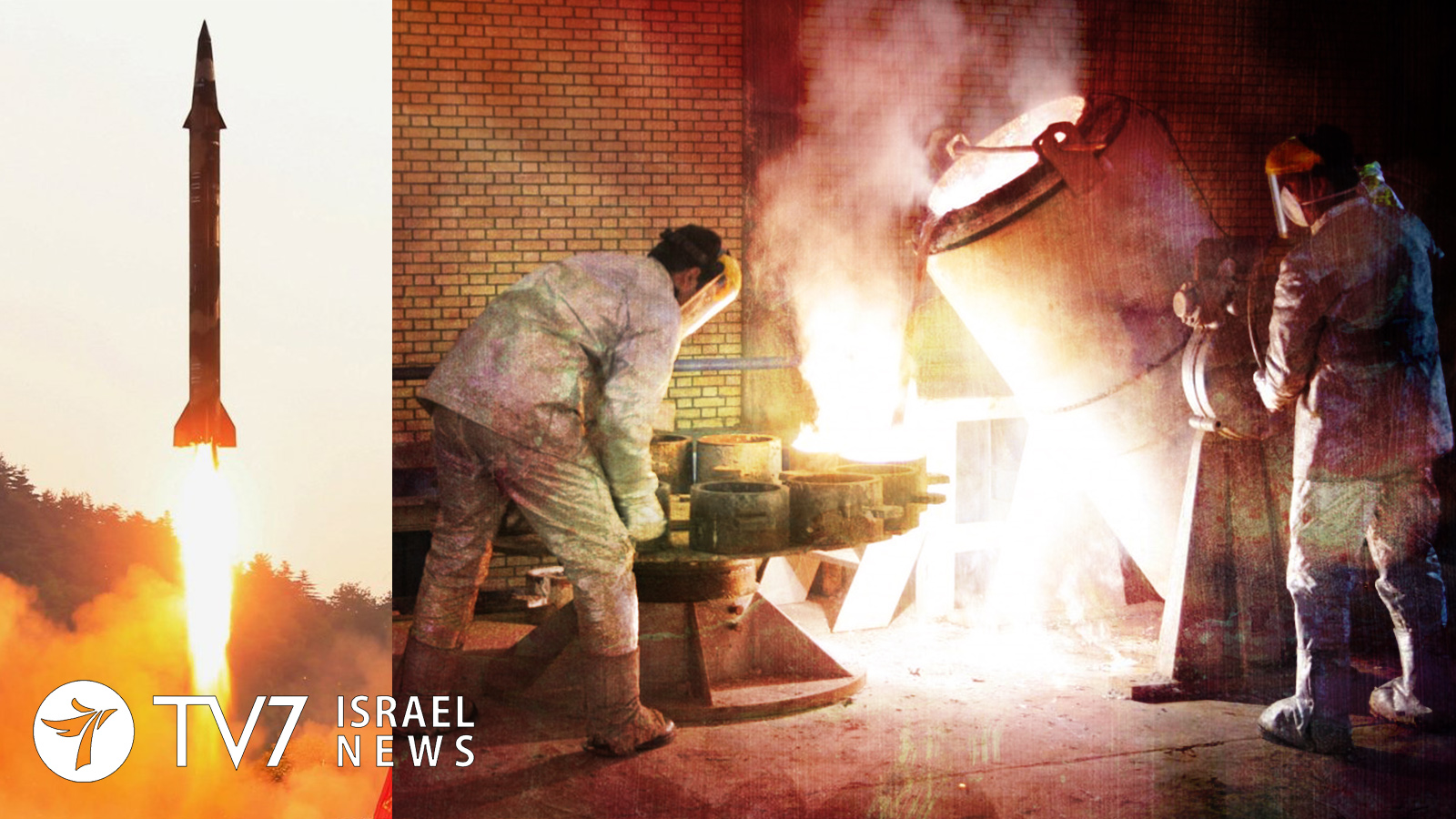Israeli Prime Minister Benjamin Netanyahu is urging Europe to impose “automatic sanctions” on Iran, for accumulating more low-enriched uranium than permitted under its 2015 nuclear deal with major powers.
The Israeli leader made the statement during a speech he delivered at a ceremony for Israeli Defense Force reservists, just after the Islamic Republic announced that it had exceeded the 300 kg. threshold of enriched uranium set by the pact. Netanyahu slammed the violation of Iran’s “explicit commitment” as “a significant step toward producing nuclear weapons.”
He elaborated that when Israel “exposed the secret Iranian nuclear archive, we proved that any nuclear agreement with Iran is built on one big lie. Now even Iran acknowledges this. Soon will be revealed additional proofs that Iran has been lying this whole time.”
After repeating Israel’s vow to prevent the Iranian development of atomic arms, Netanyahu said “on this day I also call on all the European countries to stand behind their commitments. You committed to act the moment Iran violates the nuclear agreement, you committed to activate the mechanism for automatic sanctions that was set in the (U.N.) Security Council. Then I say to you: Do it. Just do it.”
Earlier on Monday Israel’s Energy Minister Yuval Steinitz accused the Ayatollah Regime of pursuing “nuclear blackmail” by stockpiling more low-enriched uranium than permitted under the deal, but voiced optimism that continued international pressure would cause Tehran to back down.
The International Atomic Energy Agency tasked with monitoring Iran’s nuclear program confirmed the breach, which was the first indisputable Iranian transgression since the United States pulled out of the deal more than a year ago, and reimposed tough economic sanctions on the Islamic Republic.
Aside from Iran, the original signatories of the Joint Comprehensive Plan of Action, which is the formal name of the nuclear accord, were the five permanent members of the United Nations Security Council—China, France, Russia, the United Kingdom, the United States—plus Germany and the European Union. In discussions with the European parties – as a precondition to any talks with the United States – Iran has demanded it be allowed to resume oil sales at the pre-April 2018 levels (at the time of Washington’s withdrawal). In the meantime, the Ayatollah Regime has vowed to break each of the deal’s nuclear curbs one by one until its promised-economic benefits have been restored.
Conversely, Iranian Foreign Minister Mohammad Javad Zarif declared the newly-amassed level of enriched uranium is not a violation of the pact, arguing his nation is within its rights to respond following the U.S. walkout. But the gambit may have far-reaching diplomatic consequences and comes less than two weeks after Trump said he ordered air strikes on Iran, only to cancel them minutes before impact.
The U.S. President responded to the most recent development, saying, “No message to Iran. They know what they’re doing. They know what they’re playing with, and I think they’re playing with fire. So, no message to Iran whatsoever.”
Iran’s parliament speaker Ali Larijani accused Trump of bullying Tehran with that remark, asserting that such language would only made Iran stronger.
U.S. National Security Advisor John Bolton issued a dire warning on Twitter, writing “there is no reason for Iran to increase its enrichment unless it’s part of an effort to reduce the breakout time to produce nuclear weapons.”
The remaining partners to the Iranian pact have been relatively circumspect. China said it regretted Iran’s move but urged all parties to exercise restraint, and labelled the U.S. ‘maximum pressure campaign against Iran’ as the “root cause of the current tensions.” European powers, which have tried to keep the JCPOA intact, have urged Iran not to take further steps that would violate it. But they have held off on declaring the agreement void or announcing sanctions of their own.
French President Emmanuel Macron expressed “his attachment to the full respect of the 2015 nuclear accord and asks Iran to reverse without delay this excess, as well as to avoid all extra measures that would put into question its nuclear commitments.” The statement added that Macron would take steps in the coming days to ensure Iran honored its commitments and continued to benefit from the economic advantages of the deal.
Regarding Israeli Prime Minister Netanyahu’s reference to the enactment of automatic Security Council sanctions, European diplomats speaking on condition of anonymity told Reuters there is a ‘dispute resolution mechanism’ enshrined in the accord to deal with “any inconsistencies,” which could lead to the reimposition of punitive measures by the U.N. It would be up to a joint commission of signatories to determine any next steps; but the European diplomats said the likelihood of that mechanism being triggered is “not for now” because “we want to defuse the crisis,” as part of the campaign by world powers to pull Washington and Tehran back from a more serious confrontation.
